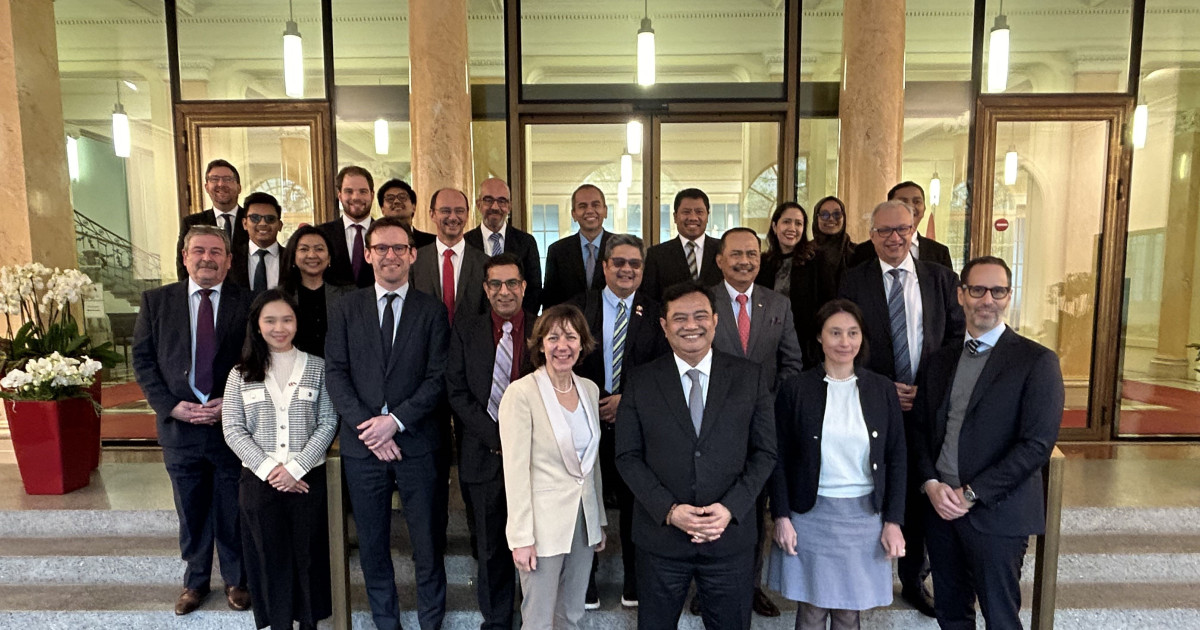On Tuesday, the 10th Joint Economic and Trade Commission (JETC) between Switzerland and Indonesia took place in Bern under the chairmanship of Ambassador Andrea Rauber Saxer and the Director General for American and European Affairs at the Indonesian Ministry of Foreign Affairs, Ambassador Umar Hadi. While the private sector was represented on the Indonesian side by the Indonesian Chamber of Commerce and Industry (KADIN), economiesuisse as well as representatives from the tech, pharmaceutical, textile, watch, logistics and certification industries were present on the Swiss side.
The timing of the JETC was extremely opportune for both delegations. This is because interesting developments have taken place in bilateral economic relations between Switzerland and Indonesia over the past few months.
New investment agreement complements existing trade agreement
At the end of 2023, the Swiss parliament approved the new investment protection agreement (BIT) between Switzerland and Indonesia. economiesuisse expects that the BIT, in combination with the bilateral free trade agreement (CEPA) that has been in place since 2021, will significantly boost the trade and investment dynamics of Swiss companies in Indonesia. The CEPA itself has not yet been able to increase bilateral trade to the extent hoped for – but the potential is great. At the JETC, measures were therefore discussed on how the utilization of the agreement by companies in both countries can be further increased in the future. This includes, for example, recognizing all preferential tariff rates.
New opportunities with Indonesia’s new president
In addition, the Indonesian people elected a new president, Prabowo Subianto, in February of this year. Prabowo will take office in October 2024. The Swiss business community is very keen to see how bilateral economic relations will develop under the president-elect.
One of Prabowo’s priorities is likely to be the construction and expansion of the new Indonesian capital Nusantara, which was initiated under the current President Jokowi. At the JETC, the possible contribution of Swiss companies (e.g. in the infrastructure, water and transport sectors) to this mega-project was discussed.
On the international stage, Prabowo will also continue to push for Indonesia’s accession to the Organization for Economic Cooperation and Development (OECD). Official accession discussions have been underway since February of this year. As the largest economy in Southeast Asia (population around 275 million) with annual growth forecasts of around 5 per cent, Indonesia is hoping for international support for its own reform plans. The latter relate in particular to economic policy. Indonesia benefits from a considerable wealth of various raw materials (including crude oil, natural gas, palm oil and nickel), but would like to process these more domestically and benefit from the corresponding value creation («commodity downstreaming»).
Concrete steps for sector-specific concerns
Finally, the Swiss business community was also able to address its concerns in the bilateral relations at the JETC. These include the ongoing difficulties in accessing innovative medicines in Indonesia, some complex import regulations in the food sector and restrictions on foreign investment in the Indonesian aviation industry. In addition, Indonesian regulations regarding halal products pose difficulties for various Swiss companies when exporting. The Indonesian delegation has assured Swiss businesses of its active support with regard to accelerating the mutual recognition of halal certifications.
